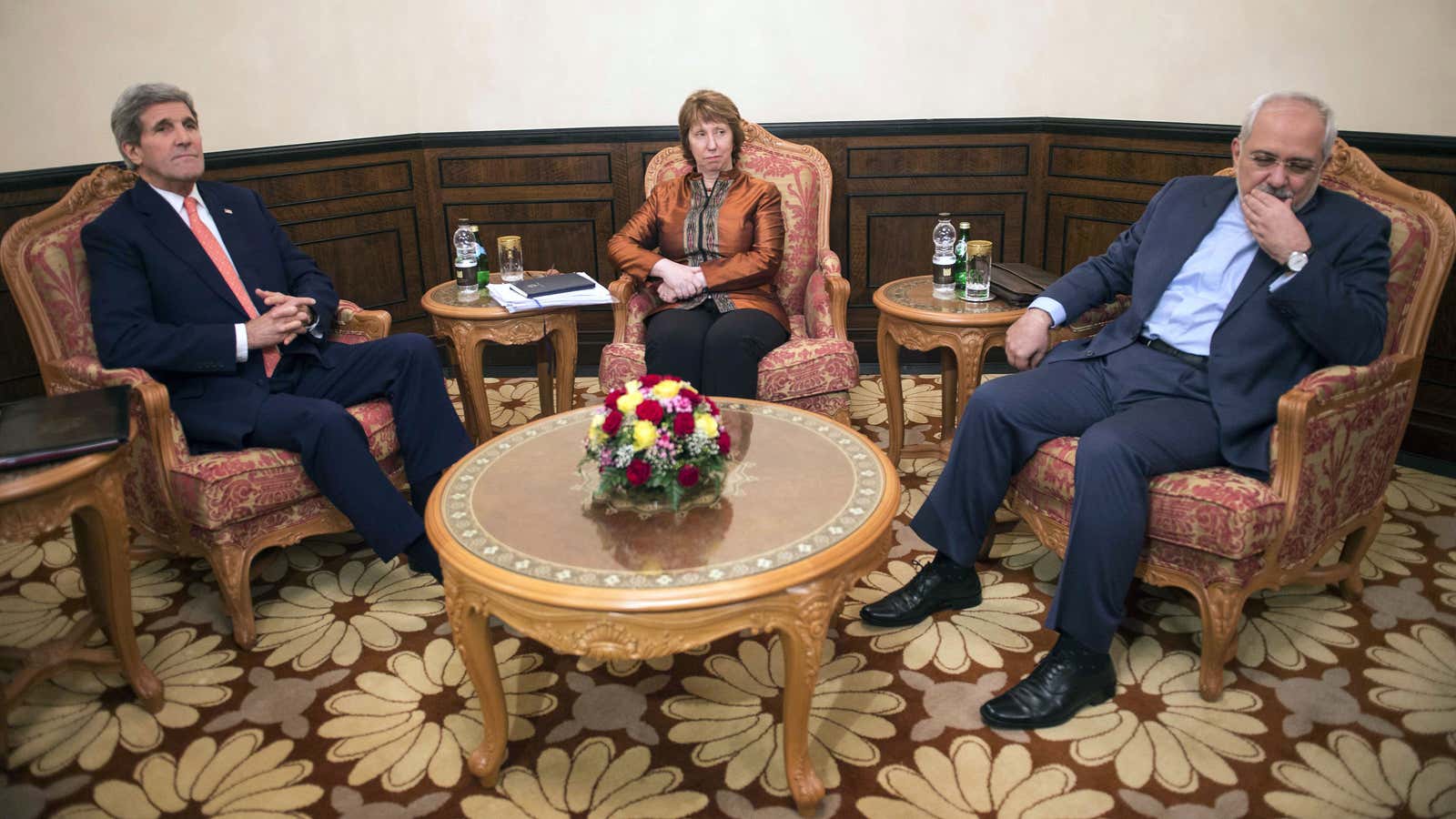With the final stretch of talks to begin tomorrow for a sanctions-lifting-and-nuclear-halting accord with Iran, the consensus is that Tehran and Western countries’ envoys will fail, and will extend their negotiations. But a small number of analysts argue differently—that, because of the stakes, especially for Iran, the likelier scenarios are starker: either a clear breakthrough, or an acrimonious collapse of the talks.
Quartz has predicted that it will be the former, with the greatest impetus for finding a resolution soon coming from Iran. This is mainly because, with the 31% plunge of oil prices since June, the consequences of protracted talks hit it hardest—sanctions already hurt, and the longer that oil prices stay relatively low, the greater the economic pressure.
Tehran’s best poker-playing posture is to feign nonchalance while pushing hard for a conclusion to the talks on or about Nov. 24 (in negotiations, clocks can defy physics and be stopped). For the Western side, the best play is to try for an on-time deal as well, but to suggest in an affable way that the sides can always agree to an extension.
Both sides know that failure means the abyss
This is an argument that realpolitik and pragmatism will ultimately prevail.
As with many negotiations, both sides think they have a monopoly on reasonableness, and that their interlocutors are either selfish ideologues or simple boobs.
This is the dynamic that leads such talks into brinksmanship. If Iranian supreme leader Ali Khamenei follows Russian leader Vladimir Putin’s playbook, he will not budge and will take the risk of simply driving his car (the Iranian economy) off the cliff (in the “acrimonious collapse” scenario). If he does that, it will be under the presumption that time will eventually force the West to relent on sanctions and reduce its demands for Iranian nuclear concessions.
But local politics are the main reason that an extension, beyond a clock-stopping few days, is unlikely: In Tehran, a failure of the talks will allow hard-liners who opposed the talks to say “I told you so,” and leave president Hassan Rouhani politically crippled. In Washington, Congress will likely impose stiffer sanctions and otherwise impede future talks.
Of course, the two sides may still make a face-saving announcement of negotiations to continue. But such talks beyond Nov. 24 are unlikely to involve genuine engagement. In other words, now is the best shot for a deal. It may also be the only shot for some time to come.
